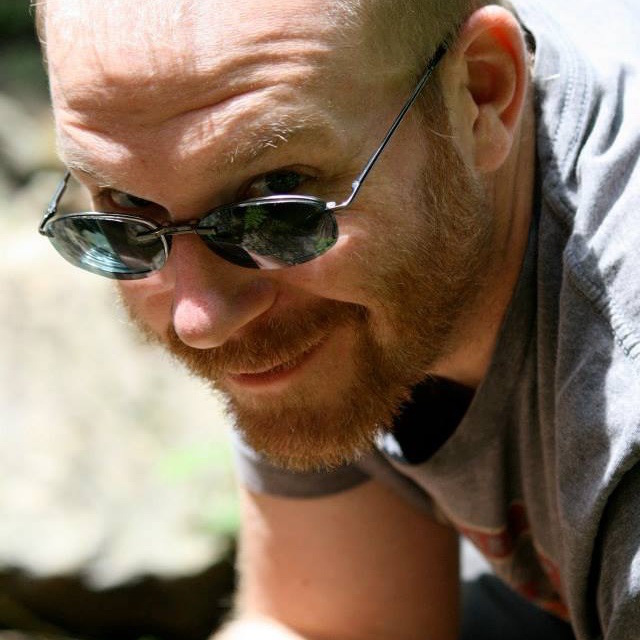You’ve written a novel. It took years of hard work and countless missed parties, but it’s done — and it’s fabulous. Now all you need is to get it published and into the hands of readers. Just one little question: How?
“The work doesn’t stop once you’re published,” says local author Jake Bible. “It starts after you’re published.” He should know — Bible has penned works of sci-fi and horror fiction for adults, young adults and middle-grade readers. He’s written screenplays, invented the Drabble Novel and hosts the “Writing In Suburbia” podcast. The business end of writing, says Bible, “is extremely hard, but we’ve all been there.”
Inspired by The Writers Coffeehouse launched by New York Times best-selling author Jonathan Maberry, Bible decided to start a similar gathering in Asheville. Maberry’s group formed when the author noticed how people would linger for an hour after a workshop on literary craft to talk about pitching, selling and marketing their work. Bible contacted Maberry both to get the Ghost Road Blues author’s OK and to connect the monthly Asheville meeting — which begins Monday, Jan. 18, at Malaprop’s — to the many other Writers Coffeehouses that have spun off Maberry’s original event.
“You check your ego at the door, and anyone is welcome,” Bible says of the gathering. “The entire point is to get area writers together to talk about the business. With The Writers Coffeehouse, we can get all these different careers and personalities and experiences together at one time … to get rid of a lot of the myths that are out there.”
The meetings provide a platform to share knowledge. A writer interested in social media can learn from others who’ve found success using those tools, while authors who hate Facebook or don’t want to tweet can pick up tips from those who’ve mastered other skill sets. But craft, unless it’s relevant to business (such as if first-person narrative sells better than third-person), won’t be discussed. That means a writer who just penned her first page can feel as comfortable joining the group as a seasoned professional.
“I’ve found most writers love to help other writers of all levels,” says Bible. As for the idea that the publishing world is competitive, the first Malaprop’s meeting will address how the field is also wide-open. “Readers don’t pit authors against authors,” says Bible, and neither will the coffeehouse. “We want to have people feel good when they walk out.”
The gathering is an opportunity for newcomers to learn from some of the best writers around. Western North Carolina is home to copywriters and best-selling fiction superstars alike. But isolation is a problem local writers face, as is a lack of publishing industry support.
“Except for the YA community, who are pretty tightknit, it’s all over the place,” says Bible. “I’m hoping connections will be made at The Writers Coffeehouse. I’m hoping some infrastructure will be sparked.”
The inaugural local Writers Coffeehouse meets at Malaprop’s Monday, Jan. 18, 7-9 p.m. Free.




Before you comment
The comments section is here to provide a platform for civil dialogue on the issues we face together as a local community. Xpress is committed to offering this platform for all voices, but when the tone of the discussion gets nasty or strays off topic, we believe many people choose not to participate. Xpress editors are determined to moderate comments to ensure a constructive interchange is maintained. All comments judged not to be in keeping with the spirit of civil discourse will be removed and repeat violators will be banned. See here for our terms of service. Thank you for being part of this effort to promote respectful discussion.